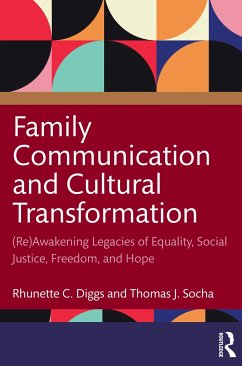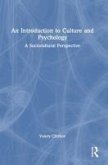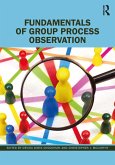Building on their past work in race and family communication, Rhunette C. Diggs and Thomas J. Socha gather in this volume contemporary theory and research concerning ways that families use communication to transform inherited cultural legacies for the better (Communication 3.0).
The book expands the field of communication's understanding of the life-long impact that family communication has on the managing diverse and clashing cultural relationships, identities, meanings, and communication practices. It spotlights the economically disenfranchised alongside the economically secure, the systematically oppressed next to beneficiaries of Whiteness, and those actually or metaphorically killed and or threatened by violence and hateful systems outside of home. Together, the contributions address omissions of diverse family contexts in family communication research and reconsider qualitative and quantitative approaches that bring respect and equality to the participant-researcher relationship.
This book is suitable as a supplementary text for courses in family communication, family studies, race and ethnicity in communication, and intergroup communication.
The book expands the field of communication's understanding of the life-long impact that family communication has on the managing diverse and clashing cultural relationships, identities, meanings, and communication practices. It spotlights the economically disenfranchised alongside the economically secure, the systematically oppressed next to beneficiaries of Whiteness, and those actually or metaphorically killed and or threatened by violence and hateful systems outside of home. Together, the contributions address omissions of diverse family contexts in family communication research and reconsider qualitative and quantitative approaches that bring respect and equality to the participant-researcher relationship.
This book is suitable as a supplementary text for courses in family communication, family studies, race and ethnicity in communication, and intergroup communication.
"Global futurity depends upon fully functioning families that utilize communication in ways that counter oppression and forge relations of justice within and beyond the family. This text conceptualizes, critiques, and curates modes of family communication and the appropriate methods for studying them. It challenges the field of communication to listen to families and learn from the marginalized."
Toni C. King, Denison University, USA.
Toni C. King, Denison University, USA.








